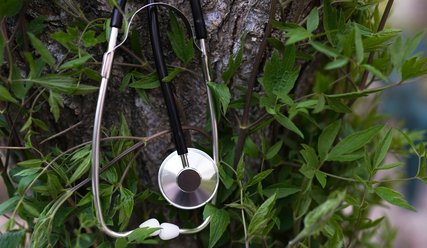‘Everyone has a role in ensuring equitable health outcomes for Māori’
Dr Maia Melbourne-Wilcox (Tūhoe) has recently been appointed to the role of Pou Whirinaki – a position that provides leadership, support, and Hauora Māori perspectives to the College. We had a chat with Maia to learn more about her background as a clinician, perspectives on Hauora Māori, and her vision for the role.
We all have an important role to play in transforming our healthcare system and ensuring equity for Māori – that’s the message from the College’s new Pou Whirinaki Dr Maia Melbourne-Wilcox.
Following in the footsteps of her predecessors, who’ve done much to advance the kaupapa and College’s understanding, care, and support of Māori GPEP registrars, Maia hopes to continue their mahi.
“Contributing to Māori workforce development is an important change that is overdue in our health care system and it’s not a responsibility that I take lightly,” Maia says.
“I received the benefit of the incredible Māori clinicians, leaders, and advocates who paved the way before me, and I hope to contribute to that same whawhai so it’s easier for those yet to come.”
Maia currently lives in Tāmaki Makaurau (Auckland), where she and her husband have whānau they are pleased to be close to. However, she calls Rūātoki in Te Moana-a-Toi (Bay of Plenty) home.
“My connection to Rūātoki, my whānau and marae are all a real driving force for me – it’s my turangawaewae and it’s just essential to who I am and what I do.”
Missing this connection was something Maia found particularly hard when she moved to Te Waipounamu for a seven year ‘adventure’ in Ōtautahi (Christchurch) in 2015, partway through her GPEP training.
While practising in Christchurch she also taught Hauora Māori to medical students as a senior lecturer with the University of Otago’s Māori Indigenous Health Institute (MIHI).
“Although I had not set out to work in medical education, I wanted to be a part of what they were doing, and it was a real privilege to work with the MIHI team and hone my skills and understanding of both Hauora Māori and the drivers of and solutions to Māori health inequities.”
Maia says that to effectively address Māori health inequities, changes must happen at every level of the healthcare system, including individual clinicians, practices, policy, governance and whole system shifts.
“Our focus as clinicians needs to be on the health outcomes achieved. Providing the ‘same care to all’, is an outdated approach and our system has proven time and time again that it won’t result in equitable outcomes in Aotearoa.”
“If Māori health inequities are present, we are both morally and ethically obliged to adapt our model of care to make sure it’s appropriate for the communities we serve. The Crown and its health system has similar obligations and additional responsibilities as signatories to Te Tiriti.”
In the context of her Pou Whirinaki role, Maia says she is also working with the College to support their strategic priorities relating to equity and diversity. This means working on issues ranging from Māori workforce development to education and improving the cultural safety and competence of our registrars, their understanding of Hauora Māori, and their role in addressing Māori health inequities.
“I tend to take a long-term view of Hauora Māori and the need to make meaningful, incremental changes that will create lasting impact for future generations of clinicians and contribute to the elimination of Māori health inequities.”
“The weight of this does not sit with Māori doctors or The Māori health Authority – we all have a responsibility, and a part to play and I’m so excited to support that kaupapa in my work with the College.”
Related

11 September 2025 | College and members
GPs want patients to be seen, heard and known

21 May 2025 | College and members
Budget 2025 opinion: We don't need to create a new health service, we need to invest in the current one

26 March 2025 | College and members